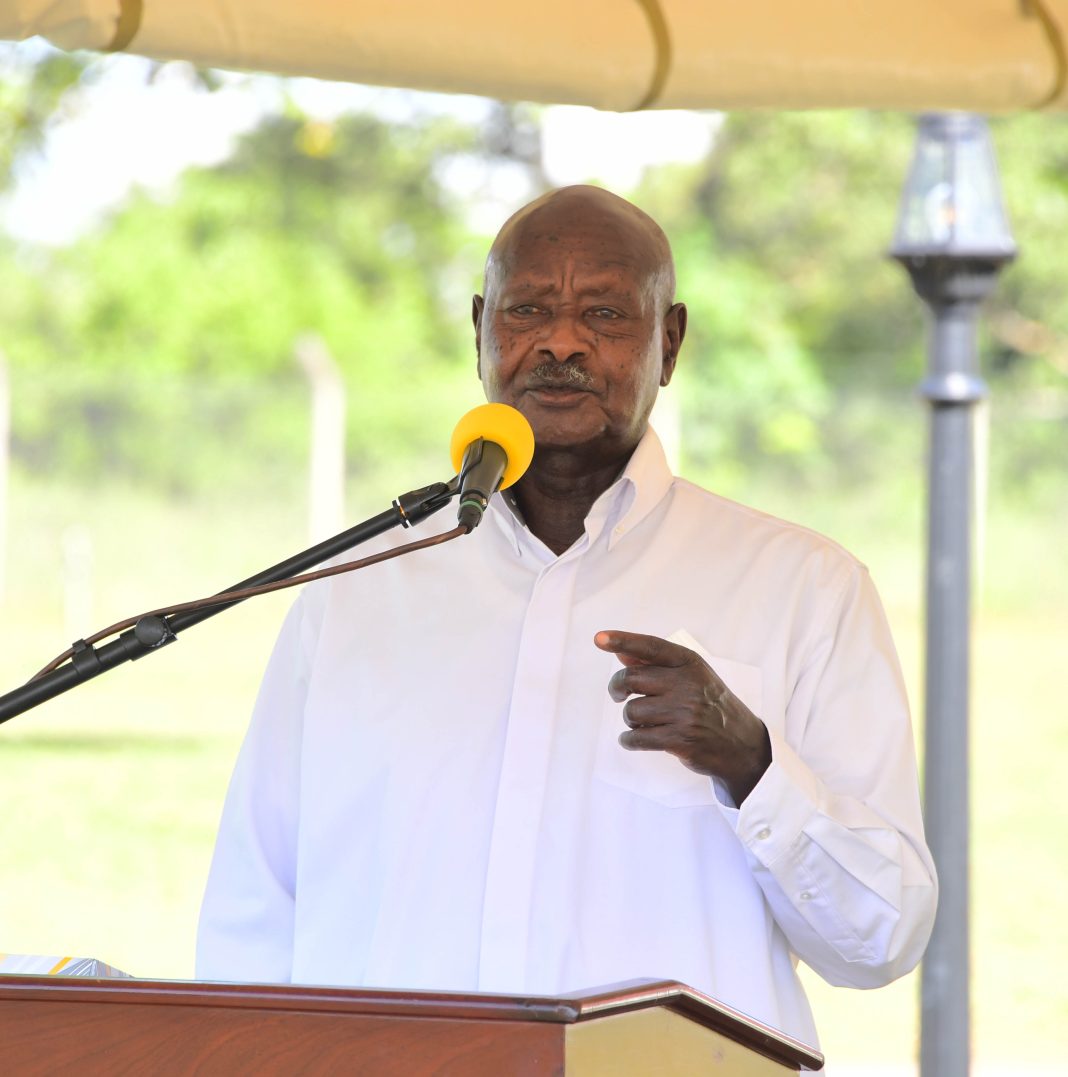The President, wielding the powers bestowed upon them by Article 99 (2) of the 1995 Constitution, issued an 18-paged executive order Executive Order to address these pressing issues. This order aimed to tackle the rampant problem of cattle rustling, the environmental damage caused by the charcoal business, the disruptive presence of undisciplined nomads known as Balaalo, the restructuring of the Uganda Police Force to encompass the entire country, and the challenges posed by the Turkana nomads.
Cattle rustling had been a long-standing issue in the northern parts of Uganda since colonial times. The President reminisced about conversations with Acholi leaders who revealed that as early as 1954, the Karimojong cattle rustlers were active in the area. The President’s cousin, Konwerezo, who served in the Uganda Prisons, also shared stories of his battles against the Karimojong rustlers in 1965. The President realized that the Karimojong were obtaining guns from Abyssinia, which further fueled their activities.
Over the years, political instability and conflicts provided a boost to the cattle rustlers. During the overthrow of Idi Amin’s regime, the Karimojong took advantage of the delay in capturing Moroto Barracks by the Tanzanian People’s Defense Force (TPDF). They looted the arsenal, acquiring automatic weapons such as AK-47s. Teaming up with the Turkana people from Kenya, the Matheniko clan of Karimojong inflicted suffering on neighboring communities like the Bokora clan of Napak. In response, other clans resorted to acquiring guns from various sources, leading to conflicts within and beyond Karamoja.
In 1985, as the National Resistance Army (NRA) advanced towards capturing Kampala, the Okellos sought the help of Karimojong rustlers to stop the NRA. However, the NRA’s 5th Battalion, led by commanders Kashaka and Kashillingyi, defeated the rustlers in Mityana. The remaining rustlers fled back to Karamoja, leaving behind their fallen comrades. With the capture of Kampala in 1986, the President was determined to put an end to cattle rustling in Uganda. The NRA deployed a massive force, including the 1st Battalion led by the heroic Mugisha Karampenga, resulting in significant battles and casualties among the rustlers.
While progress was being made in curbing cattle rustling, another challenge arose in the form of rebel attacks led by Eric Odwar, Odong Latek, and other former Uganda National Liberation Army (UNLA) soldiers. These attacks disrupted the disarmament efforts and forced the NRA to shift its focus to countering the UNLA-supported Lakwena-Kony rebellion, which was backed by Sudan. The heavily armed Karimojong rustlers took advantage of the situation, extending their reach into areas like Apac, Ngora, and Pallisa, causing further devastation.
In 2004, the government embarked on a renewed disarmament campaign in Karamoja. With support from peace-loving groups such as women, elders, and churches, the disarmament effort collected 41,000 rifles from the rustlers. However, this operation had unintended consequences. It transformed two Infantry Divisions of the Uganda Army into security forces tasked with guarding kraals and chasing rustlers on foot. This left the army ill-equipped to handle large-scale conflicts or support neighboring countries like South Sudan during times of war.
Recognizing the need to address these mistakes, the President issued an Executive Order targeting key issues, including :
- Addressing anti-cattle rustling efforts in North and Northeastern Uganda.
Cattle rustling not only leads to immense economic losses for communities heavily reliant on livestock but also contributes to heightened tensions and conflicts among different ethnic groups. By prioritizing the eradication of this criminal activity, President Museveni aims to restore peace, stability, and prosperity to these affected areas. The President has called for a multi-faceted approach that involves comprehensive law enforcement efforts, collaboration with community leaders, and engaging local populations in sustainable development initiatives. - Tackling the environmental damage caused by the charcoal business.
The production and trade of charcoal have led to widespread deforestation, soil degradation, and the loss of biodiversity in many parts of Uganda. President Museveni recognizes the detrimental effects of this industry on the environment and aims to implement measures that promote sustainable and alternative sources of energy. The Executive Order calls for the adoption of renewable energy technologies, increased enforcement of regulations governing charcoal production, and the promotion of reforestation initiatives to restore the country’s natural resources.So charcoal burning and trade have been banned. - Dealing with the indiscipline of nomads known as Balaalo.
Addressing the indiscipline among nomadic communities known as Balaalo constitutes the third directive in the Executive Order. Balaalo, often associated with illegal grazing practices, encroachment on private lands, and conflicts with local farmers, have been a source of tension in several regions.So they have been banned from northern Uganda.- Recasting the Uganda Police Force into a Uganda-wide Police from being solely a Kampala Police.
Recognizing the need for a more effective and responsive law enforcement agency, President Museveni has called for a comprehensive review of the police system. The Executive Order highlights the importance of enhanced training, improved resources, and strengthened accountability mechanisms within the police force. The aim is to build a professional, transparent, and community-oriented police force that can effectively combat crime, maintain law and order, and protect the rights of all Ugandan citizens.
- Recasting the Uganda Police Force into a Uganda-wide Police from being solely a Kampala Police.
- Addressing the problem of the Turkana nomads.
Warned that if these issues are not resolved within the given timeframe which is six months , the person or authority will have no choice but to expel all the Kenyan Turkanas and their cattle from Uganda. It also states that they will not be allowed to re-enter Uganda with their cattle in the future.























